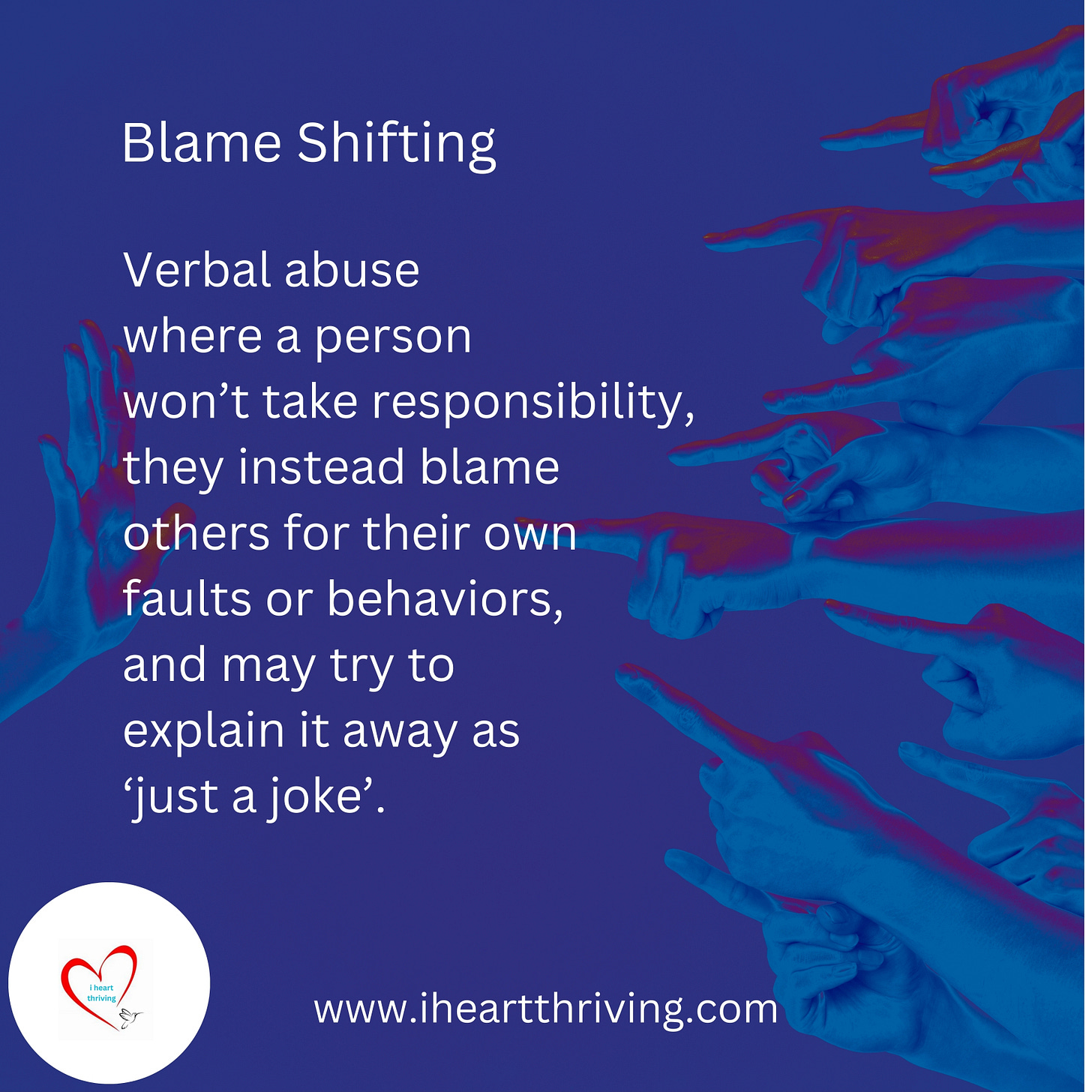Narcissistic blame shifting is a tactic used by individuals with narcissistic tendencies to avoid taking responsibility for their actions by deflecting blame onto others. This behavior can be particularly damaging as it undermines the victim's confidence and creates confusion and guilt.
In Relationships
Gaslighting: The narcissist denies or distorts past events, making their partner question their memory and perception, thereby shifting the blame for any issues or conflicts.
Projection: Accusing the partner of the narcissist’s own negative behaviors (e.g., infidelity, lying, or selfishness) to divert attention from their own faults.
Victim Blaming: Making the partner feel responsible for the narcissist’s abusive behavior by claiming that they provoked it or are too sensitive.
Invalidating Feelings: Dismissing the partner’s feelings and experiences, suggesting that they are overreacting or being unreasonable.
Minimizing Issues: Downplaying the narcissist’s mistakes or wrongdoings while exaggerating the partner’s faults and shortcomings.
At Home
Family Conflicts: Blaming family members for any problems or conflicts within the household, creating division and strife.
Parental Manipulation: Shifting blame onto children for the narcissist's failures or shortcomings, making them feel guilty and responsible for the narcissist's emotional state.
Financial Issues: Blaming financial problems on a partner or family member’s spending habits, regardless of the narcissist's own financial irresponsibility.
Household Responsibilities: Avoiding responsibility for household tasks by blaming others for not doing their share or accusing them of doing things incorrectly.
Creating Chaos: Stirring up conflicts and then blaming others for the resulting turmoil, making themselves appear as the rational one amidst the chaos.
At Work
Avoiding Accountability: Refusing to take responsibility for mistakes or failures by blaming colleagues, subordinates, or external factors.
Sabotaging Colleagues: Undermining others’ work or reputation and then blaming them for the poor outcomes or mistakes.
Miscommunication: Blaming misunderstandings or communication failures on others to deflect from their own lack of clarity or organization.
Project Failures: Shifting blame for project delays or failures onto team members, despite their own mismanagement or lack of leadership.
Manipulative Delegation: Assigning tasks to others without proper guidance or support and then blaming them when things go wrong.
Blame shifting can be particularly damaging to self-esteem and mental well-being. Recognizing these tactics and taking steps to protect yourself is crucial for maintaining healthy relationships and a positive self-image.
Getting Help
If you know someone who may be struggling from the effects of blame shifting tactics or narcissistic abuse, please let them know they can contact us for support. There is hope, recovery is possible.
https://www.iheartthriving.com/
i heart thriving is a community where people who have experienced life changing, abusive, or other extraordinary difficulties, find a safe space to Heal, Grow, and Thrive.
Recognizing and Addressing Narcissistic Blame Shifting
Stay Objective: Keep track of facts and document incidents to have a clear, objective perspective on what actually happened.
Set Boundaries: Clearly communicate and enforce boundaries to protect yourself from manipulative blame shifting.
Communicate Clearly: Address issues directly and calmly, using "I" statements to express your feelings and experiences without escalating the conflict.
Seek External Support: Talk to trusted friends, family members, or other qualified help for validation and support.
Avoid Defensiveness: Recognize that blame shifting is a tactic to manipulate and control, and avoid getting drawn into unnecessary arguments or defending yourself excessively.
Empower Yourself: Focus on building your self-esteem and confidence to resist the effects of blame shifting and maintain a strong sense of self.
Getting Help
Are you, or someone you know, possibly struggling from the effects of narcissistic abuse? Receiving qualified help is imperative to understanding what and how the abuse happened, processing the effects of the abuse and resulting feelings, and being able to recover and move forward to enjoying your best life.
Please reach out to us:
https://www.iheartthriving.com/
i heart thriving is a Community where people who have experienced life changing, abusive, or other extraordinary difficulties, find a safe space to Heal, Grow, and Thrive.


